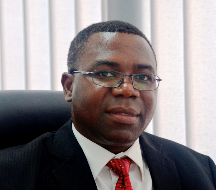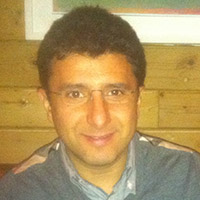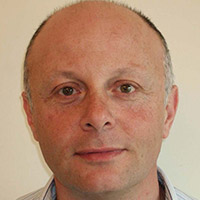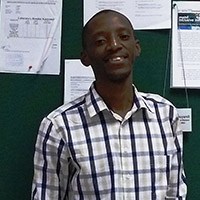Pump-Priming Project Awards - Round 1 Awardees
Listed on this page are the successful projects awarded in our first round of pump-priming.
Protein antibody markers of pneumococcal carriage in support of protein and whole cell vaccine trial design using pan-proteomic antibody screening
Project Lead and Collaborators
Project Lead and Collaborators
Dr Joseph Campo
Director of Operations
Antigen Discovery, Inc (ADI) (USA)
Collaborators:
Professor Andrew Pollard, University of Oxford (UK)
Mrs Merryn Voysey, University of Oxford (UK)
Professor Shrijana Shrestha, Patan Academy of Health Sciences (Nepal)

Project overview
Project overview
Summary
Pneumococcal disease is a serious illness that can result in death. In many countries, children are given a vaccine to protect them against pneumococcal disease which is caused by a bacterial infection. There are more than 90 different types (‘serotypes’) of the bacteria. The vaccine only covers a 10-12 of these serotypes. New vaccines being developed may protect against all types of pneumococcal disease.
New vaccines are tested in clinical trials to show that they are effective. One way of doing this is to measure if the bacteria is present (‘carried’) in the nasal passages of children who have been vaccinated. The bacteria are commonly ‘carried’ in the nasal passages without causing disease, and this is the way it spreads to other people. If a vaccine can stop carriage, it will also stop the spread of disease.
Unfortunately, tests of nasal swabs for bacteria often miss detecting carriage. Carriage occurs only for a short period of time and the swab may not be taken at the time the bacteria were present. Thus, many carriage events are missed.
Another method of testing vaccines is to measure antibodies. However, the new vaccines (‘protein’ vaccines) produce different antibodies from the older (‘polysaccharide’) vaccines and so the old tests are no longer useful.
This study aims to use blood samples taken one month apart from children in a vaccine study in Nepal, and test for new protein antibodies. There are 2,200 different proteins that can be tested all at once using a new test called a protein microarray. The children in the study also had nasal swabs taken, so we will be able to see if those children carrying the bacteria also had high levels of antibodies. This study will enable us to know which protein antibodies could be used in future assessment of vaccines which contain pneumococcal proteins. These new vaccines could improve protection in both developing countries with the highest burden of disease, but could also be important in improving protection against meningitis and pneumonia in the U.K.
Project outcomes
Pneumonia is a serious illness that can result in death. In many countries, children are given a vaccine to protect them against infection by the pneumonia-causing bacteria Streptococcus pneumoniae, also known as the pneumococcus. New vaccines are tested in clinical trials to show that they are effective. Although one way of measuring effectiveness is to measure if the bacteria is present (“carried”) in the nasal passages of children, these tests can often miss detecting carriage. An alternative way to detect carriage is to develop a test that measures antibodies against pneumococcal proteins or polysaccharides that increase when the bacteria are carried.
This study aimed to take blood samples from children in a vaccine study in Nepal and test for new protein antibodies that could be used in a test to detect carriage during a clinical trial. Among the Nepalese infants enrolled in a clinical trial of the PCV10 vaccine, a total of 15 non-carriers and 15 carriers (five serogroup 10 and/or 19 carriers, five serogroup 6 carriers and five serotype 34 carriers) were selected for this study. Carriage status was determined at the time point before a booster dose of the vaccine was given. Infant blood serum samples that were collected at the pre-booster time point and 1 month post-booster time point were included in the study.
Samples were tested on S. pneumoniae Pan-Genome Microarrays that contained 2,629 proteins and 24 pneumococcal capsular polysaccharides for measurement of serum immunoglobulin G (“IgG”) and A (“IgA”). Capsular polysaccharide responses 1 month post-booster dose of PCV10 were elevated levels for the serotypes contained within the PCV10 vaccine but not for non-vaccine serotypes, with the exception of serotypes 9N and 6A, both of which are serotypes from serogroups contained in PCV10 (9V and 6B, respectively).
Both IgG and IgA responses were observed and provided validation of the microarray technology used with polysaccharides. IgG and IgA against carriage-specific capsular polysaccharides did not, however, associate with carriage status at the pre-booster time point or one month after booster. Significant anti-pneumococcal protein responses was observed in the infant samples for both IgG and IgA, which was consistent with observations made in healthy U.S. adults (Croucher et al., PNAS, 2017; Campo et al., eLIFE, 2018).
IgG responses tended to be higher in infants with carriage of any serotype than in infants without carriage. Multiple pneumococcal proteins that are normally associated with the bacterial cell surface were identified as potential targets of antibody markers of carriage.
Antibodies did not generally increase one month after carriage, irrespective of the carried serotypes. Thus, antibodies may have been maximal at time of carriage, pre-booster dose. Measuring sample pre- and post-carriage may more clearly identify carriage events.
These encouraging results suggest that an antibody signature may serve as a sensitive measurement for detection of carriage events during clinical trials. Such a tool may simplify clinical trial design in LMICs and accelerate progression of vaccine candidates. Additionally, these data provide new knowledge of existing levels of immune responses in LMICs, particularly in infants.
Measurement of Shigella-specific antibodies in the first two years of life in Zambian children to refine correlates of protection and determine the optimal window for vaccination
Project Lead and Collaborators
Project Lead and Collaborators
Dr Roma Chilengi
Chief Scientific Officer
Centre for Infectious Disease Research in Zambia (Zambia)
Collaborators:
Professor Daniel Cohen, Tel Aviv University (Israel)
Professor Gad Frankel, Imperial College London (UK)

Project overview
Project overview
Summary
Shigella is responsible for 190 million annual cases of diarrhoea in low and middle-income countries (LMIC), and estimated 65,000 deaths globally, or 11% of all diarrhoea related child deaths. Presently, no vaccine is available for prevention of Shigella infection but candidate vaccines are under advanced development. Unfortunately, there is insufficient knowledge on when infants in endemic areas get first infected, levels of Shigella-specific antibodies of maternal origin and acquired ones, and what would be the best time window for eventual vaccination.
We propose to utilise existing serum samples from a cohort of Zambian infants recruited to study rotavirus vaccine response from 6 weeks through 24 months of age. We will screen samples collected at 6, 14, 52 & 104 weeks infants age by enzyme-linked immunosorbent assay (ELISA) for antibodies (IgG, IgA & IgM) to Shigella lipopolysaccharide (LPS) antigen. As antibody immune responses have been shown to be important for clinical protection, defining the time at which infants mount immune responses to Shigella in the absence of a vaccine will reveal the time when natural infection emerges and therefore, a potential optimal window for future vaccination.
Roma Chilengi at the Centre for Infectious Disease Research in Zambia has stored serum samples and clinical data on the cohort. Daniel Cohen at University of Tel Aviv has worked extensively on Shigella immunology, and will provide skills transfer to CIDRZ, the LMIC partner. Gad Frankel and team at Imperial College, London has been working on pathogen-host-microbiome interactions during infections with enteric pathogens employing a type III secretion system (T3SS) and on the role IgG antibodies play in protection. Findings from this preparatory work will result in a detailed understanding of the evolution of Shigella-induced immunity in infants naturally exposed to the infection and will be critical for future evaluation of vaccines under advanced clinical development.
Project outcomes
Shigellosis is a leading cause of moderate-to-severe diarrhoea and related mortality in young children in LMICs. Knowledge on naturally acquired immunity can support the development of Shigella candidate vaccines mostly needed in LMICs. We aimed to quantify Shigella-specific antibodies of maternal origin and those naturally acquired in Zambian infants.
Using plasma samples collected from infants at age 6, 14 and 52-weeks were tested for Shigella (S. sonnei and S. flexneri 2a) lipopolysaccharide (LPS) antigen specific immunoglobulin G (IgG) by enzyme-linked immunosorbent assay.
Overall, we found that at 6 weeks infant age, the IgG geometric mean titres (GMT) against S. sonnei (N=159) and S. flexneri 2a (N=135) LPS were high i.e. 312 (95% CI 261-372) and 446 (95% CI 343-580) respectively. At 14 weeks, a decline in IgG GMT was observed for both S. sonnei to 106 (95% CI 89-126), and S. flexneri 2a to 183 (95% CI 147-230). Both S. sonnei and S. flexneri 2a specific IgG GMT continued to wane by 52 weeks infant age as compared to 6 weeks.
From this work we conclude that in our setting, transplacental IgG anti-Shigella LPS is present at high levels in early infancy, and begins to wane by age 14 weeks. We document early exposure and naturally acquired IgG antibodies to S. flexneri 2a and S. sonnei LPS in part of infants between 14 and 52 weeks of age.
These results suggest that a potential timing of vaccination would be after 14 but before 52 weeks of age to ensure early infant protection against shigellosis.
Measuring non-typhoidal Salmonella specific antibodies in oral fluid as a non-invasive alternative to serum
Project Lead and Collaborators
Project Lead and Collaborators
Dr Sean Elias
Post-Doctoral Scientist
University of Oxford (UK)
Collaborators:
Dr Esther Muthumbi, KEMRI-Wellcome (Kenya)
Professor Cal MacLennan, University of Oxford (UK)

Project overview
Project overview
Summary
Immunoepidemiological studies from Africa support the concept that antibody acquisition with age likely provides protection against invasive non-typhoidal Salmonella disease. Induction of antibodies to key antigenic targets such as the O antigen of lipopolysaccharide has been a significant target for vaccine development. Whilst pre-clinical studies in animals have shown promise for such vaccines, in humans we lack a true correlate of protection. It would be valuable to better understand antibody induction to non-typhoidal Salmonella antigens to help develop an effective vaccine for all individuals.
Most studies of invasive non-typhoidal Salmonella disease tend to revolve around young children who, along with HIV and malaria-infected individuals are amongst the most susceptible to infection. Measuring antibody titres in such individuals is usually performed using serum samples. Particularly in young children, obtaining serum through venepuncture can be stressful to both child and parent. As a result, patient retention or recruitment of healthy subjects can be difficult as parental consent is often withdrawn once their child is healthy or is not given in the first place.
We propose to explore the use of non-invasive methods of measuring antibody responses to non-typhoidal Salmonella to increase patient acceptability and seek to identify comparable signatures to serum-derived antibody responses. Oral-fluid antibody has been successfully measured as an alternative to serum for a number of bacterial and viral antigens and the two responses have often correlated strongly. This alternative method may also provide additional data to support new correlates of protection, susceptibility or carriage, given Salmonella is an orally-ingested pathogen and this is a measure of a relevant mucosal response. This study will compare antibody responses across different age groups in both Kenya and the UK.
Project outcomes
This study sought to prove that oral fluid can be used as a non-invasive surrogate for serum in measuring antibody responses to non-typhoidal Salmonella (NTS). We have clearly shown that for IgG the responses in oral fluid strongly correlates with that in serum. Though the concentration of IgG in oral fluid is lower than in serum our assays gave sufficient sensitivity to detect IgG in most adults who were IgG serum positive. Infants up to 6 months show low levels of serum IgG which is assumed to be mostly derived from their mother. The observation that most of these infants are IgG negative in oral fluid supports this observation.
Though IgG correlated between oral fluid and serum, IgA did not. Whilst this means it is not a useful surrogate our observations suggest that measuring IgA in oral fluid is a relevant measurement of a different immune response to NTS than that seen in serum. In infants we observed very high IgA responses in contrast to low to often negative responses in serum. Low serum responses were expected as infants to not derive IgA from their mother and so any antibody would likely be self-derived following exposure to NTS. The high IgA in oral fluid in infants is likely derived from breast milk which has 10-100 times the concentration of total IgA of serum and is known to remain in the mouth after feeding. In adults we also saw no correlation in oral fluid and serum. In this population the explanation for this is that IgA also originates from alternative components of saliva, those that are linked to the serum source and others that are not.
Looking at the overall picture, by measuring both oral fluid and serum responses we gain a much bigger snapshot of the immune response to NTS at any given time. In combination particularly for infants in the first year of life we get a better idea of the age of first exposure from comparing the age at which IgG is first observed in oral fluid and IgA is observed in serum as neither is contradicted by antibody from the infant’s mother. In contrast serum IgG and oral fluid IgA can give us potential insights into the immune response of the mother which may be critical for understanding prevention of NTS disease in infants in their first year of life.
In studies of infants, children and adults oral fluid has one clear advantage over serum, the fact it is a non-invasive procedure. This improves acceptability in a population and decreases stress on participants. We believe it has also lead to quicker recruitment on the basis it can be done at participant’s homes rather than clinic and can be done by any trained individual rather than a designated phlebotomist. In future studies we believe that oral fluid collection can be a useful tool in the design of clinical studies’ replacing serum collection on some occasions or complementing it on others, depending on the questions being asked.
Identification of correlates of protection against pneumococcal colonization
Project Lead and Collaborators
Project Lead and Collaborators
Professor Daniela Ferreira
Reader in Respiratory Infection Immunity and Vaccines
Liverpool School of Tropical Medicine (UK)
Collaborators:
Dr Carla Solórzano-González, Liverpool School of Tropical Medicine (UK)
Prof Richard Malley, Boston Children’s Hospital (USA)
Dr Joseph Campo, Antigen Discovery Inc (USA)
Dr Eliane Miyaji, Instituto Butantan (Brazil)
Dr Imran Saleem, John Moores University Liverpool (UK)

Project overview
Project overview
Summary
Pneumococcal disease is a public health threat that affects particularly vulnerable populations, such as children, the elderly, and those living in resource-limited conditions. Pneumococcus is an encapsulated bacterium and based on this capsule, it is classified in serotypes. There are >95 serotypes and licenced vaccines, based on capsular components, only protects against 13. These vaccines are expensive to produce, which limits the affordability and availability, especially in low and middle-income countries where the burden of the disease is the highest. Pneumococcus is found in the microflora that colonises the nasopharynx of healthy adults and children. This colonisation is the pre-requisite for disease and the reservoir for transmission. Novel vaccines must confer protection against colonisation. The correlates of protection against colonisation in humans are unknown, and this information is needed to accelerate the development of improved vaccines.
Protein-based vaccines could overcome the limitations of polysaccharide-based vaccines by protecting against all serotypes and reducing production costs. Together with the Boston Children’s Hospital (USA) and Instituto Butantan (Brazil), we generated the largest library of purified pneumococcal proteins and tested their capacity to elicit protective immune responses using samples derived from our Human Infection Model with Pneumococcus. Preliminary results have shown that a subset of these proteins elicit an immune response that correlates with protection against pneumococcal acquisition and control of density in those individuals colonised. We proposed a new partnership with Antigen Discovery, Instituto Butantan and Liverpool John Moores University to comprehensively identify correlates of protection against colonisation in a larger cohort and further develop the top protective antigens as vaccine candidates. Success will i) identify the cellular mechanisms that are involved in protection against pneumococcal colonisation, ii) identify novel protein-based vaccine candidates and iii) provide data to support funding applications to test the top candidates as nanoparticles formulation for a lung-delivered vaccine against pneumonia.
Project outcomes
Current vaccines against pneumococcus are based on capsular components of the bacteria protecting against few of the >95 different serotypes. Novel vaccine strategies aim to use unencapsulated whole cell bacteria or conserved antigens among serotypes that could confer universal protection.
In murine models, vaccination with whole cell bacteria or protein antigens induces high levels of the cytokine IL-17A. This cytokine mediates neutrophil recruitment to the nasopharynx to clear colonisation. In humans, the role of IL-17A or any other serotype independent correlate of protection have not been well described and this is key to develop the next generation of pneumococcal vaccines.
Using a library of 70 purified pneumococcal proteins and baseline samples derived from the human infection model with pneumococcus, we aimed to identify serotype-independent correlates of protection against pneumococcal nasal colonisation. We measured baseline blood responses of healthy young adults against the protein library and unencapsulated whole cell bacteria. The results showed similar IL-17A levels for those volunteers susceptible and those protected against experimental pneumococcal colonisation. This indicates that IL-17A levels at baseline do not associate with protection against pneumococcal acquisition.
In addition, we observed that those volunteers protected against colonisation had higher levels of the chemokine MCP-1 than those susceptible to colonisation, highlighting monocyte recruitment as a key mediator of colonisation clearance. The results also showed that high levels of the chemokine RANTES at baseline associates with susceptibility to colonisation. To corroborate the results obtained in healthy adults, we measured protein-specific responses in blood of children, target group of novel vaccines, colonised and non-colonised with pneumococcus.
The results showed that IL-17A levels were higher in those children colonised with pneumococcus, confirming IL-17A role as a marker of exposure to pneumococcus. Colonisation of the nasopharynx by pneumococcus is important both as reservoir for transmission and a determinant for disease. Therefore, it was important to contrast the results obtained in blood with mucosal responses. We assessed protein-specific cytokine levels produced by nasal cells after incubation with 4 pneumococcal proteins. As observed in blood samples, nasal cells from volunteers susceptible to colonisation produced higher levels of RANTES than those protected. Levels of IL-17A were undetectable and MCP-1 levels were similar between volunteers susceptible and protected. We are currently investigating the possible role of RANTES as a marker of susceptibility.
The results obtained from this pump-priming award suggest that contrary to the key mechanism in mouse models, in humans, systemic and mucosal protein-specific IL-17A do not correlate with protection against acquisition. These data together suggest that in humans other mechanisms may be responsible for serotype-independent protective responses and underlie the importance of confirming mouse findings with human data.
Supporting the development of a DIVA compatible glycoconjugate vaccine for brucellosis
Project Lead and Collaborators
Project Lead and Collaborators
Boris Gavrilov
Director
Biologics Development Facility Huvepharma EOOD (Bulgaria)
Collaborators:
Dr John McGiven, Animal and Plant Health Agency (UK)

Project overview
Project overview
Summary
The aim of the project is to develop a safe, protective and DIVA (enables Differentiation of Infected from Vaccinated Animals) compatible vaccine against brucellosis. This disease is caused by the bacteria Brucella and it is one of the world’s most common animal to human transmitted diseases. It causes considerable livestock losses in many of the most deprived areas of the world and perpetuates poverty. Some vaccines already exist for ruminants, but these have numerous flaws. Vaccination causes disease in a significant number of animals (which can result in abortions in livestock), accidental human exposure causes disease, and they generate an immune response that cannot be distinguished from that generated by infection. This makes running effective disease control and eradication programmes extremely challenging confounding antibodies in diagnostic tests. There is no recognised vaccine to protect humans or swine against this disease. The proposed vaccine is targeted for use in ruminants but may also be effective in humans, swine and other hosts. This vaccine candidate has several novel attributes: the O-polysaccharide (OPS) will be conjugated to a protein from the target pathogen; the OPS itself will be derived from a less hazardous organism than Brucella so that it may be grown in less stringent and expensive conditions (although the organisms are different, the OPS is virtually identical), and the OPS will be modified to enable DIVA compatibility when applied with synthetic oligosaccharide serodiagnostic antigens.
Project outcomes
The aims of the project have been met:
- a candidate Brucella vaccine that incorporates the DIVA technology into a product that combines the induction of anti-Brucella OPS antibodies with a cell mediated immune response and can be produced without the need of high containment (BSL3) facilities has been produced
- sufficient material to enable proof of concept in-vivo studies has been produced
- methods suitable for commercial scale up of production have been developed.
Gonococcal Vaccine Preferred Product Characteristics and Public Health Value Proposition: Initial Global Stakeholder Consultation
Project Lead and Collaborators
Project Lead and Collaborators
Dr Sami Gottlieb
Medical Officer
World Health Organisation (Switzerland)
Collaborators:
Dr Birgitte Giersing, WHO (Switzerland)
Professor Philippe Mayaud, London School of Hygiene and Tropical Medicine (UK)
Dr Sinead Delany-Moretlwe, University of Witwatersrand (South Africa)
Dr Ranmini Kularatne, National Institute for Communicable Diseases (South Africa)
Professor Gita Ramjee, HIV Prevention Research Unit (South Africa)
Dr Pachara Sirivongrangson, Ministry of Public Health (Thailand)

Project overview
Project overview
Summary
Gonorrhoea, a sexually transmitted infection (STI) caused by the bacterium Neisseria gonorrhoeae, is a major public health concern, with adverse consequences including pelvic inflammatory disease, infertility, and adverse pregnancy outcomes. Development of a vaccine for gonorrhoea has become a global public health priority, because the organism has developed resistance to currently available antibiotics. Recent scientific developments suggest a vaccine is biologically feasible, which has reinvigorated the field. However, several barriers remain. For example, there is a lack of consensus on the best approach to develop the vaccine (how it should work), the most effective use case (who should be immunized), what the vaccine should achieve (safety and efficacy requirements), and how it should be implemented within current immunization programmes, to have the greatest public health benefit. It will be especially important to understand these factors from the perspectives of low- and middle-income countries (LMICs), where the need for the vaccine may be greatest. We propose a global stakeholder consultation meeting to bring together experts in gonorrhoea basic science, epidemiology, public health control programs, and policy, particularly from LMICs, along with experts in vaccine development and industry partners.
The objectives of the meeting are to define where and for whom gonorrhoea vaccines are needed, discuss the characteristics a gonorrhoea vaccine should have to address the public health need, especially for LMICs, assess the status of current gonorrhoea vaccine development approaches, and determine how the vaccine would be delivered if available. Crucially, the meeting will identify critical research and data needs to advance gonorrhoea vaccine development. The consultation will result in one or more published scientific articles summarizing discussions from the meeting that provide guiding principles and preferences for gonorrhoea vaccines to meet priority public health needs, as well as gaps that need to be addressed to advance these vaccines.
Project outcomes
Interest in developing vaccines against Neisseria gonorrhoeae has grown dramatically in recent years, because of the rising threat of gonococcal anti-microbial resistance (AMR) and renewed optimism that vaccines for gonorrhoea are biologically feasible, given evidence for possible cross-protection against gonorrhoea by group B Neisseria meningitidis vaccines. Vaccine candidates using several approaches are currently in preclinical development. To stimulate investment and accelerate development of gonococcal vaccines, several questions need to be answered, including how future gonorrhoea vaccines would be received and used, and what their overall value would be in addressing public health goals in both low- and middle-income and high-income contexts.
In January 2019, WHO convened a multidisciplinary international group of experts to lay the groundwork for understanding the potential public health value of gonorrhoea vaccines and for developing gonococcal vaccine preferred product characteristics (PPCs). WHO PPCs describe preferences for vaccine attributes that would be most relevant to the global unmet public health need. Meeting participants emphasized the need for vaccines to control gonorrhoea with the overarching public health goals of preventing adverse sexual and reproductive health outcomes such as infertility and reducing the impact of gonococcal AMR, which could dramatically worsen these outcomes. Meeting discussions centred around important PPC considerations like vaccine indications, target populations, and potential immunization strategies, and highlighted critical research and data needs to inform the public health value assessment and advance gonococcal vaccine development.
Discussions from the BactiVac-supported WHO meeting are reported in two manuscripts, which also include a summary of current gonococcal vaccine research and development efforts and a table of research and data needs that are essential for answering key questions about the use and value of gonorrhoea vaccines. The meeting discussions are the starting point for a planned collaborative, consultative process, led by WHO, to develop formal PPC documents and undertake activities to inform the public health value of gonococcal vaccines.
Attenuated herpesvirus-based vaccines for low-cost antibiotic-independent control of bacterial disease in livestock - a proof of concept study
Project Lead and Collaborators
Project Lead and Collaborators
Dr Michael Jarvis
Associate Professor
The Vaccine Group (TVG) Ltd (UK)
Collaborators:
Professor Alain Vanderplasschen, University of Liege (Belgium)
Dr Matthew Upton, University of Plymouth (UK)

Project overview
Project overview
Summary
Headlines are filled with news of drug-resistant bacteria running out of control. The Chief Medical Officer for England highlighted the critical nature of this problem, warning that "antibiotics are losing their effectiveness at a rate that is alarming and irreversible…". There are similar problems in managing bacterial infections in livestock. Overuse in animals may also be increasing resistance in bacteria affecting humans. Vaccination may help tackle the crisis. The Norwegian fishing industry has shown vaccination to be highly effective at controlling bacterial infections without the need for antibiotics. Our aim is to develop an effective vaccine against bovine mastitis (bacterial infection of the udder), a cause of serious health problems in dairy cows. Mastitis also decreases milk production and quality, costing the UK dairy industry £200 million a year. Dairy farmers are making considerable headway in reducing antibiotic usage. Unfortunately, current vaccines against mastitis bacteria are not very effective, which means farmers must still use antibiotics and costly animal management procedures to control mastitis. We will develop a safe and effective vaccine to reduce mastitis in cows using a new kind of vaccine already shown to be effective against other difficult-to-control diseases. This proof-of-concept study will focus on one of the three main bacteria that cause mastitis, Escherichia coli (E. coli). In addition to our main goal of helping UK farmers, a mission of the company leading this project, The Vaccine Group (TVG), is to develop vaccines that also benefit low and middle-income countries (LMICs). Many LMICs, such as Ethiopia, depend on milk for food and mastitis is similarly a big problem. Additional unique selling points of our vaccine therefore relate to its low cost: both in terms of administration, being able to induce long-lived immune responses after only one or two doses, and in regard to vaccine production.
Project outcomes
The Problem: We describe the initial characterization of a new type of vaccine being developed to prevent bacterial infections in agricultural animals without the use of antibiotics. Headlines are filled with news of drug-resistant bacteria running out of control. The Chief Medical Officer for England highlighted the critical nature of this problem, warning that "antibiotics are losing their effectiveness at a rate that is alarming and irreversible…". There are similar problems in managing bacterial infections in livestock. Overuse in animals may also be increasing resistance in bacteria affecting humans. Vaccination may help tackle the crisis. The Norwegian fishing industry has shown vaccination to be highly effective at controlling bacterial infections without the need for antibiotics.
Our Aim: We will develop an effective vaccine against bovine mastitis (bacterial infection of the udder), a cause of serious health problems in dairy cows. Mastitis also decreases milk production and quality, costing the UK dairy industry £200 million a year. Dairy farmers are making considerable headway in reducing antibiotic usage. Unfortunately, current vaccines against mastitis bacteria are not very effective, which means farmers must still use antibiotics and costly animal management procedures to control mastitis.
Our Approach: We will develop a safe and effective vaccine to reduce mastitis in cows using a new kind of vaccine already shown to be effective against other difficult-to-control diseases. This proof-of-concept study will focus on one of the three main bacteria that cause mastitis, Escherichia coli (E. coli). In addition to our main goal of helping UK farmers, a mission of the company leading this project, The Vaccine Group (TVG), is to develop vaccines that also benefit low and middle-income countries (LMICs). Many LMICs, such as Ethiopia, depend on milk for food and mastitis is similarly a big problem. Additional unique selling points of our vaccine therefore relate to its low cost: both in terms of administration, being able to induce long-lived immune responses after only one or two doses, and in regard to vaccine production. Results: Results from the present study show that our new vaccine, which expresses a protein of the E. coli bacterium called YncE, can induce an immune response that is able to target the E. coli YncE protein. This immune response was able to recognize the form of YncE that is present within the whole intact bacterium. Together with data from an earlier study showing that immune responses against YncE are protective against E. coli infection, these exciting findings suggest that our vaccine may be able to provide a form of immunity that can prevent E. coli infection.
Future Work: These promising results from our initial BactiVac-funded pump-priming catalyst award serve as the basis for future work to test whether our vaccine can control E. coli infection in animals. Such a capacity will be a major step towards development of vaccines for antibiotic-free control of mastitis and other bacterial infections in livestock. In the longer term, these discoveries may have direct application towards the use of similar strategies to control human bacterial disease.
Improving the production of a multivalent experimental vaccine against the diseases induced by Salmonella enterica
Project Lead and Collaborators
Project Lead and Collaborators
Professor Constantino Lopez-Macias
Principal Investigator
Mexican Social Security Institute (Mexico)
Collaborators:
Dr Rocky Cranenburgh, Prokarium (UK)
Professor Adam Cunningham, University of Birmingham (UK)

Project overview
Project overview
Summary
Salmonella infections in humans are the cause of enteric fevers (Typhoid (TF) and Paratyphoid (PT)) and Non-Typhoidal Salmonellosis (NTS), which are major causes of morbidity and mortality in developing countries. There are no commercially available vaccines for PT and NTS and current vaccines for TF have not been practical to eradicate the disease. Previously, we have developed experimental vaccines for TF and NTS using purified porins from Salmonella enterica serovars Typhi and Typhimurium. TF vaccine is safe and well tolerated in humans inducing high titres of bactericidal antibodies, which last for more than 10 years. Recently, we have developed a novel experimental multivalent vaccine using a combination of porins from different Salmonella enterica that induce long lasting bactericidal antibody responses to clinical strains and protection against the challenge with Typhi, and serovars Typhimurium, Enteritidis and Paratyphi in mice. This represents a novel vaccine candidate against both enteric fevers and NTS. As part of the formulation, we use porins from a Typhi strain that requires level 3 biosafety conditions for handling making multivalent vaccine production more complicated and expensive. In order to reduce costs and to aid scaling up the production of the vaccine it is important to produce it under biosafety 1 conditions. Prokarium has developed a typhoid vaccine based on an attenuated Typhi strain ZH9 that can be handed under level 1 biosafety conditions. Here, we propose to test if ZH9 strain can be used to produce Typhi porins in level 1-biosafety conditions and if these porins could be used to formulate the multivalent experimental vaccine. We will assess, in mice, the immunogenicity and protective capacity (against Typhi, Paratyphi, Enteritidis and Typhimurium challenge) of ZH9 porins and the multivalent vaccine prepared with these porins. Furthermore, we will study their capacity to induce bactericidal antibodies to clinical isolates of different Salmonella serovars. The results of this project will be important for scaling up the multivalent vaccine production, to produce batches for toxicological tests and clinical trials and finally to obtain a commercially viable product.
Project outcomes
A method to purify porins from an attenuated S. Typhi strain (ATT) was successfully developed under biosafety level 1 conditions. 14 batches (167 mg) of highly purified porins from this strain (ATTP) were obtained (<0.2 endotoxin units per microgram), electrophoretic analysis showed the classic porins profile. Mouse anti-WTP serum reacts better with ATTP native protein forms than denatured ones. WTP and ATTP induced similar IgM, IgG and IgG subclasses antibody responses, although slightly lower IgM, IgG2a and IgG2b titres were induced by ATTP. ATTP induce less specific CD4+, IFN-g+ T cells than WTP, but similar numbers of CD8+, IFN-g+ T cells. WTP and ATTP, prime and boost immunized in mice, induced similar level of protection against live WT S. Typhi bacteria challenge. Both multivalent vaccines prepared with WTP or ATTP induced similar reduction in S. Typhi numbers.
Taken together, our results suggest that attenuated S. Typhi strain could be a suitable source of porins generated in biosafety 1 conditions, to be used in the formulation of a multivalent experimental vaccine against the diseases produced by Salmonella enterica.
Using General Modules for Membrane Antigens (GMMA) as multivalent Salmonella vaccines for Low-Middle Income Countries (LMIC) and travellers
Project Lead and Collaborators
Project Lead and Collaborators
Dr Pietro Mastroeni
Reader Infection and Immunity
University of Cambridge (UK)
Collaborator:
Dr Francesca Micoli, GSK (Italy)

Project overview
Project overview
Summary
Background. Bacterial diseases are a grave threat for humankind causing approximately six million deaths per year. Antibiotic resistance is increasing. Hygiene measures are failing. Urbanization, climate changes and global travel make disease control increasingly difficult. Vaccines remain one of the key tools to combat infections for both residents and travellers to endemic areas, especially in developing countries. Salmonella are bacteria that cause life-threatening diseases in humans and other animal species. Typhoid fever, paratyphoid fever and invasive non-typhoidal Salmonella (iNTS) infections have a high incidence worldwide and these diseases coexist in many geographical areas, especially LMIC.
There is extensive international consensus on the urgent need for better and affordable vaccines against systemic Salmonella infections. Current vaccines against typhoid fever are safe and immunogenic, but require multiple doses and/or show moderate protective ability. No vaccines against iNTS or paratyphoid fever are currently licensed.
The aim of the project is to use Generalised Modules for Membrane Antigens (GMMA) as a means to generate multivalent and low cost vaccines to protect humans against many strains of Salmonella that cause severe infections in endemic areas. GMMA are outer membrane vesicles naturally shed by Salmonella bacteria genetically manipulated to increase blebbing and decrease reactogenicity. GMMA present multiple antigens in the context of a membrane and have optimal size for immune stimulation plus self-adjuvanting properties. These vesicles are easy and cheap to produce, are strongly immunogenic and protective.
Work plan. We shall use Salmonella strains, previously optimised to produce large quantities of GMMA. We shall then engineer these strains to express also S. Typhi antigens. GMMA expressing S. Typhi antigens will be fully characterized. We shall then test the immunogenicity and protective activity of these multivalent vaccine preparations in robust and tractable preclinical murine models.
Project outcomes
The project has provided innovative proof-of-concept that it is possible to deliver the Vi polysaccharide using General Modules for Membrane Antigens (GMMA). The findings provide the fundamental bases to generate cheap, multivalent, safe vaccines for Low-Middle Income Countries (LMIC) and travellers against typhoid and paratyphoid fever as well as invasive non-typhoid Salmonella infections.
Using seroepidemiology of non-Typhoidal Salmonella (NTS) in Kenya to understand changes in risks of invasion and transmission and direct the clinical development programme for vaccines against NTS
Project Lead and Collaborators
Project Lead and Collaborators
Dr Esther Muthumbi
PhD student, Research Medical Officer
KEMRI-Wellcome (Kenya)
Collaborators:
Professor Anthony Scott, London School of Hygiene and Tropical Medicine (UK)
Dr Sean Elias, University of Oxford (UK)
Professor Cal MacLennan, University of Oxford (UK)

Project overview
Project overview
Summary
Non-typhoidal Salmonella (NTS) are a common cause of bacteremia in Africa, affecting mainly infants and HIV infected adults. Host risk factors such as malaria, malnutrition, sickle-cell disease and HIV, which are prevalent in Africa, are associated with increased susceptibility to invasive disease. Effective measures are needed to control this disease that kills 1 in every 5 individuals who are admitted to hospital with it. Improved water and sanitation practices, and vaccination are proposed as possible control mechanisms. However, three factors make it difficult to determine the best control strategy and the most effective implementation methods: (i) a lack of understanding of NTS transmission (routes and reservoirs); (ii) a lack of understanding of the transmission intensity or force of infection; and (iii) the focus of the disease in high-risk groups.
Interestingly, the burden of invasive NTS (iNTS) disease has been noted to decrease in parallel with decreasing malaria prevalence. The mechanisms underlying this relationship are not well understood. It is not known whether this represents a reduction in transmission of the disease in the community in association with declining malaria, or a reduction in invasion due to improved host-susceptibility as malaria infection declines. This information is important as the two hypotheses point towards different control strategies.
We propose a retrospective analysis of the trends in transmission of NTS in two settings in Kilifi: one where malaria prevalence has decreased over time and one where malaria prevalence has remained stable (and high) over time. We will test serum samples, collected in annual cross-sectional surveys in these two locations between 1998 and 2016, for anti-NTS antibodies. The results will be analysed for changes in transmission intensity of NTS over time and between the two locations.
Project outcomes
Our preliminary findings indicate that in a setting with decreasing incidence of invasive Non-typhoidal Salmonella (NTS) disease, the seroprevalence of anti-NTS antibodies against S. Enteritidis has decreased over time while the seroprevalence of anti-NTS antibodies against S. Typhimurium has remained stable over the same time period. The age at first infection with S. Enteritidis has also increased. This points to an overall decrease in the transmission of Salmonella Enteritidis infections in the community. Whether this decline is related to the decline in malaria transmission that has been observed in the same setting is yet to be determined.
A novel bivalent vaccine to prevent both Salmonella Typhi and Paratyphi infections: preclinical proof of concept
Project Lead and Collaborators
Project Lead and Collaborators
Dr Christine Rollier
Research Scientist
University of Oxford (UK)
Collaborators:
Dr Savitha Nagaraj, St John's Research Institute (India)
Dr Carl Britto, University of Oxford (UK)
Professor Andrew J Pollard, University of Oxford (UK)
Dr Mary Dias, St John's Research Institute (India)
Dr Christina Dold, University of Oxford (UK)

Project overview
Project overview
Summary
Our aim is to develop a novel vaccine against two bacterial infections, together causing a large proportion of enteric fever cases in low-and-middle-income countries: typhoid and paratyphoid. Disease caused by these bacteria is a major global-health problem responsible for up to 21.6 million cases and 216,510 deaths annually. The established typhoid vaccines, Ty21a and Vi polysaccharide, have moderate efficacy, low immunogenicity in infants, and little evidence of efficacy beyond three years from vaccination. Recently WHO-recommended new typhoid conjugate vaccines may solve many of these issues, but there remains no vaccine to prevent the substantial paratyphoid disease burden in Asia. Moreover, strains of bacteria resistant to antibiotics are emerging and disseminating globally, thus posing a real threat to the affected populations. Importantly, high cost is a limiting factor for wide use of vaccines in low-income countries, therefore a bivalent vaccine targeting both infections would be a particularly suited approach to improving health in the affected areas. We have selected two components common to both the typhoid and paratyphoid bacteria, and have already demonstrated that each component is able to induce strong immune responses when formulated in our proprietary vaccine technology. In this project, we will create a bivalent construct and investigate if the vaccine is able to protect against infection in animal models. In parallel, through a collaboration with St. John’s Research Institute, India, we will characterize the response induced by our selected antigens in the populations most affected by typhoid and paratyphoid fever in India during natural infection and re-infections, as this is essential to understanding the potential of our vaccine approach.
If successful, the outcome of this project will be a vaccine formulation that can be progressed to clinical development, and the data generated will be used to leverage funding for GMP production and a phase I trial.
Project outcomes
Our aim is to develop a novel vaccine against two bacterial infections, together causing a large proportion of enteric fever cases in low-and-middle-income countries: typhoid and paratyphoid. Importantly, high cost is a limiting factor for wide use of vaccines in low-income countries, therefore a bivalent vaccine targeting both infections would be a particularly suited approach to improving health in the affected areas. We have selected two components common to both the typhoid and paratyphoid bacteria, and have already demonstrated that each component is able to induce strong immune responses when formulated in our proprietary vaccine technology.
In this project, we created bivalent vaccine candidates and demonstrated that the vaccines are able to induce a strong immune response after a single injection.
Field evaluation and validation of a novel and rapid ETEC diagnostic assay in a resource limited setting
Project Lead and Collaborators
Project Lead and Collaborators
Dr Michelo Simuyandi
Research Fellow
Centre for Infectious Disease Research in Zambia (Zambia)
Collaborators:
Dr Subhra Chakraborty, Johns Hopkins University (USA)
Professor Gordon Dougan, The Sanger Institute (UK)

Project overview
Project overview
Summary
Enterotoxigenic Escherichia coli (ETEC) are among the most important pathogens associated with moderate-to-severe diarrhoea (MSD) in children less than 5 years old living in low and middle income countries (LMICs). Estimated deaths associated with ETEC are 42,000 among children under-5 and 74,100 deaths among all ages. ETEC is also estimated to cause 12 million episodes of travellers’ diarrhoea each year; although these estimates are likely underreported due to insufficient surveillance structures in endemic areas. Repeated bouts of diarrhoeal disease can result in cognitive and developmental impairment, life-long disability and reduced life expectancy. There are limited data on country and region-specific incidences of ETEC, especially in developing countries, which bear the highest burden of diarrhoea-associated morbidity and mortality. A major constraint is the complexity of the diagnostic methods currently used to detect ETEC infections, which are both insufficiently sensitive and/or not feasible in most resource-poor settings.
We propose exploratory work to fill this critical gap in the availability of appropriately sensitive and cost-effective rapid diagnostic test (RDT) for ETEC and to characterise the circulating ETEC strains in Zambia with the goal of improving diagnosis, contributing to the generation of accurate burden data, and accelerating vaccine development in Africa.
The aim of this research proposal is to evaluate and validate a novel ETEC RDT based on a loop-mediated isothermal amplification (LAMP) technique developed by our collaborator at the Johns Hopkins University (JHU). The ETEC RDT is simple, rapid, sensitive, specific, equipment is electricity free, comparatively inexpensive, easy to scale up and use in resource-poor settings. The LAMP assay uses an innovative sample preparation directly from stool without isolating DNA, and targets the ETEC toxin genes. The performance of the ETEC RDT will be evaluated and validated against culture and the quantitative polymerase chain reaction (QPCR) methods in Zambia.
Project outcomes
Operational: The ETEC RDT is easy to both set up and use in a resource limited setting. This is because:
(i) It does not require highly skilled personal to run when compared to other methods such as Culture and qPCR)
(ii) The reagents don’t need refrigeration
(iii) The amplification device runs off a battery (does not need constant power supply and
(iv) The results' readout (positive or negative) do not require technical personnel to interpret.
Performance: The observed specificity and sensitivity are high enough to suggest that the RDT could be used in a field setting to rapidly detect ETEC among patients presenting with diarrhoea and health facilities.